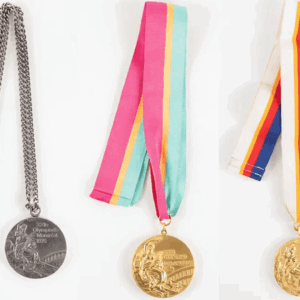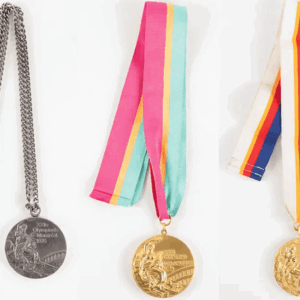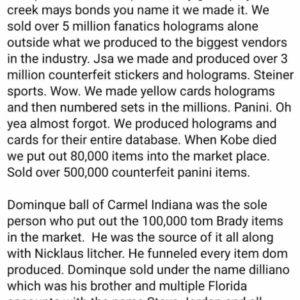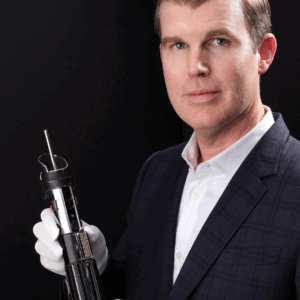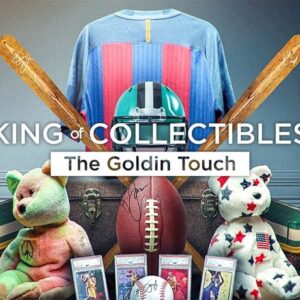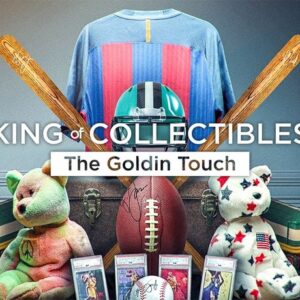In what can only be described as a true-crime caper gone wrong, the world of sports memorabilia has been shaken to its core. The eye of this storm centers in Indiana, where authorities have traced an alleged massive counterfeit memorabilia operation back to Brett Lemieux, a well-known autograph dealer. In a twist of tragic proportions, Lemieux was discovered deceased, the victim of a self-inflicted gunshot wound, as police executed a search warrant amid suspicions of a multimillion-dollar forgery operation in Westfield.
The official cause of Lemieux’s death remains to be ascertained by the Hamilton County Coroner’s Office, but the circumstances have ignited a frenzy. Fans, collectors, and industry magnates are swirling in a tempest stirred as much by surprise as by disbelief.
The scandal first gained legs when the “Autographs 101” Facebook group received a bombshell post purportedly penned by Lemieux himself. This digital admission pointed to a counterfeit operation of staggering magnitude, allegedly distributing more than four million fake sports items into the market. The post also claimed a jaw-dropping $350 million in sales. The memo sent the autograph community into overdrive, with collectors now scrutinizing their collections with newfound skepticism.
Operating under the business moniker “Mister Mancave,” Lemieux flaunted “the largest framed jersey inventory on the web.” Yet, beneath this facade lies a mystery as puzzling as a playbook written in code. Listed with a Columbus, Ohio address, Mister Mancave seemingly existed only in spirit, with no tangible store. Furthermore, the business was incorporated twice within Indiana over five years, expressing its roots where the drama would ultimately unfold.
In his alleged confession, Lemieux outlined a counterfeit strategy that revolved around imitating hologram stickers, the linchpin of authenticity used by renowned companies like Panini, Fanatics, and James Spence Authentics. In a haunting revelation, he claimed to have unleashed roughly 80,000 fake Kobe Bryant memorabilia into circulation following the tragic passing of the basketball legend in 2020. The fakes were bedecked with stickers so convincing they duped buyers and sellers alike.
The reach of this deception was not confined solely to the world of basketball. Mister Mancave’s offerings spanned a wide array of sports, evident in listings like an Aaron Judge-signed baseball, flaunting a fraudulent Fanatics hologram for $399—a significant discount from the $699 price tag at Fanatics. These sweet bargains, though suspicious, remained shrouded beneath layers of counterfeit holography wizardry.
Now, industry titans and authenticators hustle to restore consumer confidence. Fanatics, a dominant force in memorabilia authentication, had already upgraded its technology to outwit such conniving fakes. It continues collaborating with law enforcement and counter-fraud experts, including seasoned FBI agents, to safeguard the integrity of sports collectibles.
In the tangled web of allegations, some industry insiders express doubt over the staggering figures Lemieux cited. As one rival astutely put it, the claim of $350 million in sales is “impossible.” However, no one disputes the damage inflicted by this scheme. Collectibles have been cast into the shadow of doubt, and respected figures like Steve Grad of autograph authentication fame warn of the ripple effects made worse by sophisticated new forgery techniques like autopens.
There were those, however, who weren’t shocked by the scandal’s emergence. Insiders noticed that Lemieux touted autographs from athletes who had not participated in signings for many moons. Among those Levieux named in his admissions, Dominique Ball, an Indiana dealer, and Wisconsin’s Nickolas Litscher both deny involvement, with Litscher poised to engage in legal proceedings after his online pillorying.
Authorities theorize Lemieux and his acolytes operated under a phalanx of business aliases scattered across selling platforms such as Ultimate Sports, Athletes One, Signature Dog, and All-American Authentics, painting a tawdry portrait of subterfuge fit for a sports noir thriller.
As the dust settles and investigations continue to peel back layers of deceit, collectors face an existential crisis over the authenticity of their cherished memorabilia. This scandal is an unholy reminder, piercing the heart of the sports collectibles industry. It serves as both a cautionary tale and a clarion call for heightened vigilance, underscoring the need for relentless evolution in fraud prevention as the game of cat-and-mouse continues.
